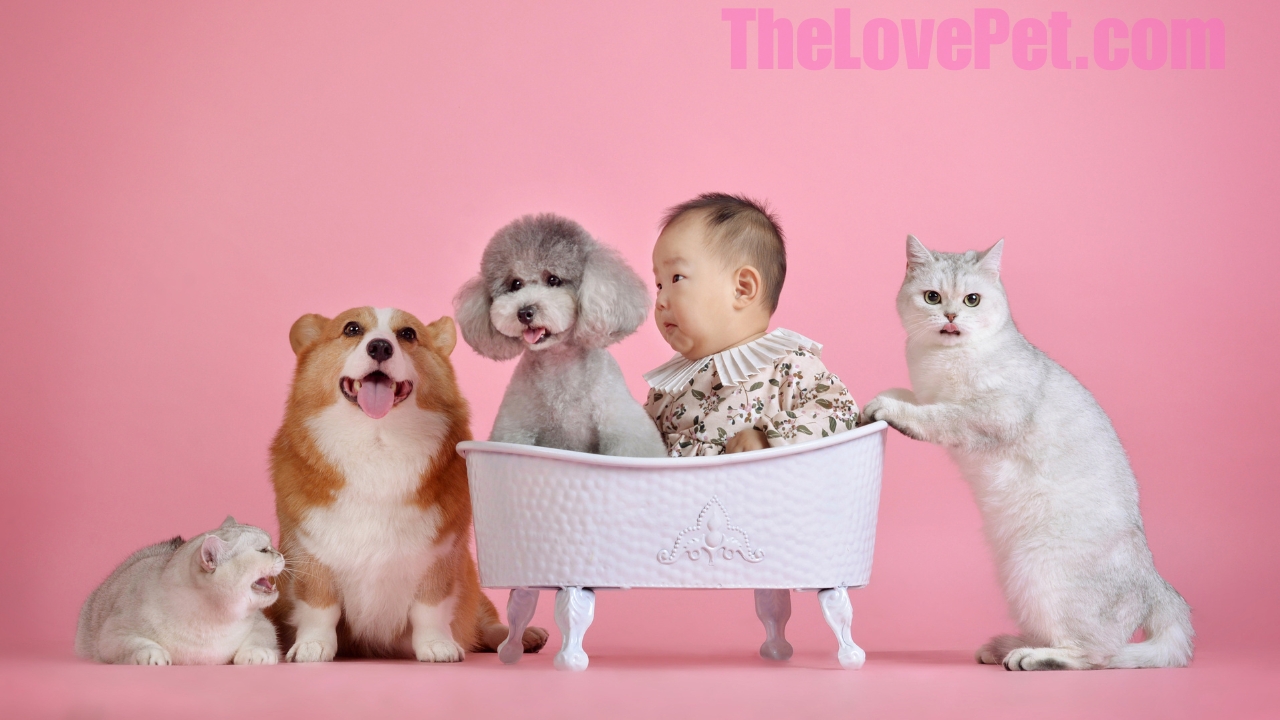The Basics of Pet Raccoons
Raccoons are wild animals, but some people do keep them as pets. Baby raccoons, called kits, may be taken in and bottle-fed by humans after being orphaned or abandoned by their mothers. However, they remain wild animals and keeping one as a pet requires specialized knowledge and care.
Is it Legal to Own a Pet Raccoon?
Laws regarding exotic pets like raccoons vary by state. In some areas, it is illegal to keep a raccoon as a pet. Other states may require permits, licenses, or proof that the animal was acquired legally. Even if legal, there are many restrictions on owning wild raccoons as pets.
Challenges of Keeping Pet Raccoons
Housing
Raccoons are highly intelligent and active animals that require secure, enriched enclosures with space to climb and forage. Their strong paws and teeth enable them to escape confinement.
Behavior
Raccoons are naturally nocturnal and can be noisy at night. Despite hand-rearing, they remain instinctively wary of humans and can bite or scratch. They explore and get into everything.
Care Needs
Raccoons eat a wide-ranging omnivorous diet and need customized feedings and veterinary care from an exotic pet specialist. Their average lifespan is 2-3 years in captivity.
Conclusion
While young raccoons may seem cute and cuddly, keeping one as a pet has many challenges and drawbacks. They require specialized care and housing that most people cannot adequately provide. There are also legal restrictions. The best outcome is for orphaned raccoons to be rehabilitated and released back into the wild whenever possible.
Additional Considerations
Diet
While young, raccoons may seem to subsist on cat or dog food, their nutritional needs are quite complex. In the wild, raccoons eat a very diverse mix of plants, insects, amphibians, fish, rodents and more. Feeding pet raccoons properly requires providing a varied diet and appropriate supplementation.
Environmental Enrichment
Raccoons are clever and playful. Keeping one mentally stimulated in captivity requires providing a large, complex space with opportunities for foraging, nesting, climbing and more. Without enrichment, raccoons often develop neurotic behaviors.
Veterinary Care
There are few vets properly trained to treat exotic pets like raccoons. These specialists can be difficult to find and expensive. However, raccoons have unique health and medical needs that regular vets may not be equipped to handle.
Zoonotic Diseases
Raccoons can carry diseases transmittable to humans, like rabies, roundworms, and leptospirosis. These risks require additional precautions when keeping raccoons as pets.
Wild Behavior
While hand-reared raccoons may seem tame at first, they remain wild animals driven by innate behaviors and instincts as they mature. There is no guarantee that a pet raccoon will adapt well domestic life long-term.
#FAQ #Update #AdditionalContent
Legal Status of Pet Raccoons by State in 2023 – Wisevoter
1. What are some interesting facts about raccoons?
2. Can you have a raccoon as a pet in the United States?
3. In which states is it legal to own a raccoon as a pet?
4. What are the legal requirements for owning a pet raccoon in Michigan and Florida?
5. Why is it illegal to keep raccoons as pets in certain states like Alabama and California?
Answers:
1. Raccoons are known for their mischievous appearance and are part of the Procyonidae family. They typically measure 20 to 40 inches in length, weigh 10 to 30 pounds, and have grayish-brown fur. Raccoons are skilled at finding food using their front paws, are active at night, and have a strong sense of smell and hearing. They can remember how to solve complex problems for months.
2. Opinions vary, and in many states, raccoons are illegal to keep as pets due to the risk of diseases they carry and their destructive behavior. Some states, like Michigan and Florida, allow pet raccoons if certain qualifications and permits are met.
3. Raccoons can be legally owned as pets in Arkansas, Delaware, Florida, Indiana, Michigan, Nebraska, Oklahoma, Rhode Island, South Carolina, Texas, West Virginia, Wisconsin, and Wyoming. However, some states may require special permits or licenses.
4. In Michigan, owning a pet raccoon is allowed if it’s approved by a veterinarian, and the owner has a wild animal permit. Florida also permits pet raccoons, but a permit from the Florida Fish and Wildlife Conservation Commission is required.
5. It’s illegal to keep raccoons as pets in states like Alabama and California due to the risks associated with their behavior and potential diseases they carry. These states have laws against owning wild animals as pets to protect public health and safety.
You can find the full post here
#FAQ #Update #AdditionalContent
Is Keeping a Raccoon as a Pet a Good Idea?
1. Should you keep a raccoon as a pet?
2. Is it legal to own a pet raccoon, and what are the regulations?
3. What are the ethical considerations of having a pet raccoon?
4. What are the housing and care requirements for pet raccoons?
5. How much does it cost to upkeep a pet raccoon, and can they be trained?
Answers:
1. Keeping a raccoon as a pet is not recommended due to their high maintenance and unpredictable nature. While they can be fascinating companions, they often damage homes, are difficult to tame, and may bite when provoked.
2. The legality of owning a pet raccoon varies by location, and there are often strict regulations regarding their ownership. Some states prohibit raccoon ownership, and even where legal, laws surrounding their care and treatment must be considered.
3. Ethical considerations include providing a proper and enriching environment for the raccoon, offering a healthy diet, and respecting their natural behaviors. It’s essential to prioritize the well-being of the animal over personal interest in owning one.
4. Housing a pet raccoon requires a raccoon-proofed home due to their tendency to chew on cords, climb on shelves, and knock down valuables. An outdoor enclosure is ideal for exercise and play, with access to food, water, and shelter.
5. Upkeep costs for a pet raccoon include a healthy, varied diet and expenses for toys and enrichment. Budgeting for regular vet checkups and emergency medical care is necessary. Training is possible due to their intelligence, and some raccoons can be potty trained.
You can find the full post here
#FAQ #Update #AdditionalContent
“Are Raccoons Suitable as Pets?”
**Can Raccoons Make Good Pets?**
Keeping a raccoon as a pet may seem intriguing, but there are several important factors to consider before bringing one into your home.
**1. Are Raccoons Legal Pets?**
– Not all areas allow raccoons as pets, and in many places, it’s illegal to own them. Make sure to check your local laws and regulations regarding raccoon ownership before considering one as a pet.
**2. What Are the Challenges of Owning a Pet Raccoon?**
– Raccoons are highly intelligent and agile, which can lead to them getting into trouble inside your home. They are also known for their boundless energy and require constant supervision, even if they seem cuddly at times.
**3. What Are the Downsides of Owning a Pet Raccoon?**
– Finding appropriate veterinary care for raccoons can be challenging, as most vets are not well-versed in their care. Raccoons are also prone to carrying diseases like rabies, distemper, and salmonella, posing a potential risk to their owners.
**4. Are Raccoons Safe Pets?**
– Raccoons are primary carriers of rabies, making them potentially dangerous to humans. Owners must be aware of the symptoms of rabies and seek immediate medical attention if exposed. Raccoons can also carry parasites that may affect both the raccoon and its owner.
**5. How Do You Adopt and Care for a Raccoon?**
– If you decide to adopt a raccoon, it’s crucial to find a reputable breeder who specializes in domesticated raccoons. They must be handled and socialized from birth to make suitable pets. Raccoon care involves providing a spacious enclosure, litter training, and a varied diet, with commercial dog food often being the primary choice.
In conclusion, while raccoons may appear charming, owning one as a pet comes with numerous challenges and risks, including legal restrictions, health concerns, and the need for dedicated care and supervision. Potential owners should carefully consider these factors before deciding to bring a raccoon into their home.
You can find the full post here









